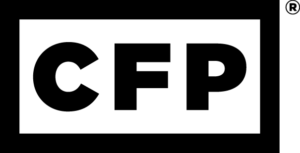Click here for the full Untucked Episode 83. You can also listen to the full episode on Spotify, Apple, or Google Podcasts.
Episode 83 What Different Generations Value
Meghan Tait: [00:00:00] So today we are going to talk about a tweet we came across from Samantha Russell. Samantha, um, tweeted a graphic that, uh, was from a white paper recently published by Fidelity. The white paper covered a lot of ground, but what we wanna focus on today is the differences in serving different generations, specifically generation Y and generation Z compared to boomers.
Um, the graphic itself, kind of I’ll say categorized the types of things those groups of people may or may not be looking for in a financial advisor. So the, I’ll read Samantha’s tweet. Her tweet said that this new generation does not want a financial advisor. They want a life coach with a side of financial planning and investment advice.
And then the graphic they shared indicates that younger generations value holistic wealth. Planning, um, which they’ve defined [00:01:00] by certain categories helping you achieve overall life goals, peace of mind, and financial planning. And then there’s the investment or portfolio management component, which the point they’re trying to make is that compared to boomers who prefer a advisor who does investment in portfolio management, younger generations are in theory looking for, I’ll say more.
Or a different level of se different
Jeff Mastronardo: type of service. I agree with that a hundred percent. Um, where I didn’t necessarily agree with it, but I didn’t do a survey like Fidelity, is that this next generation is ranking, investment and portfolio management as their kind of, their number one priority based upon the percentages in this tweet.
Right? Right. Managing the money was 32%. Mm-hmm. Achieving goals was 29% or 28%. Yeah. So it’s still, and I just don’t agree with that.
Meghan Tait: Like you don’t agree with what she took from it?
Jeff Mastronardo: Yes. Yeah. [00:02:00] Uh, and, and just from my experience, like personally, I focus more on the financial planning stuff with my advisor and I care way more about the financial planning stuff than I do about in the investment management.
And maybe that’s a function of. My understanding of investment management. Sure. And I’m 45 and I don’t even care to look at this stuff for another 20 years. I just wanna let it go, let it grow, be as aggressive as possible. I don’t care what funds you use. And I, and just maybe cuz I know a little bit about it Sure.
But I would have to guess, and you deal with more of the younger demographic than I do, um, but it seems like all the financial planning stuff is a greater concern to them. Than like the timing of what we’re gonna buy and are we moving in and out of, of Bitcoin or should we, you know, um, eliminate an international holding.
It’s more about how do we pay for college? How much should I save? Do I [00:03:00] have enough to retire? Um, should I buy or lease this car? Like, I think I would have to guess it’s more for, for that demographic. It’s more about those other questions I just mentioned rather than investment management.
Meghan Tait: Yeah, I, I think that’s fair to say, although I think a lot of those things are not, and, and maybe some of them are, but a lot of that stuff isn’t maybe things people are thinking about.
So what I mean by that is often what’s gets people in the door is. I don’t understand what to do with my 401k, or I inherited a brokerage account from so-and-so, what do I do with it? So I think the financial planning, while it’s critically important, and people through processes learn that they should be asking certain questions.
A lot of the times, in my experience at least, it’s not typically what gets them engaged with an advisor. There’s often. An investment related question or concern or their mind that leads them here, [00:04:00] and then the discussion broadens and they realize, oh, shit. I have a lot of other questions in a lot of other areas.
But that’s maybe my, and I mean, I’m agreeing with you, Jeff, like there’s a lot of other things that they think about and are worried about, but oftentimes the initial concern as to why they engage with a professional is investment related. You’re dead right.
Jeff Mastronardo: You’re dead Right. Absolutely. That initial.
It’s, I got an inheritance. Yeah. Uh, we wanna sell a house. What do we do with the money? Yeah. I’m leaving this company, what do I do with my old 401k? And then when you have the discussion, well, yeah, we do manage money. That’s kind of a, a small part of what we do. Let me tell you what else we do. And it’s like, oh my God.
You’re right. Yeah. There are a lot of decisions I have to make and I think they do grow into understanding. It’s more about the financial planning and the investment stuff is easy. Totally.
Mike Traynor: Yeah. I think I, I guess my, I would say it’s hard to, when you, when you say to somebody, Investment or portfolio management, financial planning, other [00:05:00] categories.
It’s hard to know how, what they think that means cuz it’s just a phrase. Mm-hmm. So for example, I would, I would say the, they’re saying the boomers here and they value the, the thing they value the most is investment and portfolio management. And Jeff, you’re saying that’s probably too high relative to some other stuff and probably it is, but I.
I, I would say that a lot of people probably think that all of the things around the money, their money withdrawing money when and where, from my ira, from my, from where, like that part of it in their minds probably is investment management, portfolio management. It’s not just the stock picking or fund picking or whatever.
So I feel like that’s, that makes sense to me as to why that would be basically half. 50% of the, of the, this poll was, was saying that those, the boomers value that, um, to that extent. Cause I think that that’s such a [00:06:00] large piece of what you’re doing with them at that stage of, of their lives is planning for this stuff and executing on it.
Not just the in actually investing in it, but figuring out. Um, how they’re gonna pay for things like where it comes from and that sort of thing. That’s all.
Meghan Tait: Which is the opposite for a younger person. Yeah. Right. Those types of questions aren’t even on their mind yet. Which would make sense why they would maybe gravitate in this if they have to pick among these, you know, things they’re looking for.
Why you might gravitate towards, oh, certainly I want peace of mind, or mm-hmm. I want to build a financial plan cuz I have. 50 grand in my 401k. Like it, it’s just, it’s not that it’s unimportant, but it’s not as consequential. I didn’t really think about it like that, if that
Mike Traynor: makes sense. And peace of mind is a bad phrase.
I feel like in this poll it should be, it should be rephrased to something like confidence in my professionals that are, that I’m working with. Like, that’s [00:07:00] like how important is that for you? And that’s, that should be. I mean, that should be probably the same for both groups, I would say. But, um, peace of mind is kind of a weird phrase.
Jeff Mastronardo: When the Boomer demographic comes to see us, it’s 50 50 to me, 50% of them come in and they’re like, really? Like their main priority is investments and what’s your philosophy and what’s your, what’s like, how do you manage money and what do you charge on that money? And the other half are, we need a plan.
Mm-hmm. And maybe even til it’s a little bit more to the, to the latter where more people come in, we, we just, we need a plan. Yeah. Or we’re really
Mike Traynor: disorganized and we need some help with all that. Yeah. Mm-hmm. But there,
Jeff Mastronardo: there’s the other half I feel like, that come in and it’s all about the money. And because they’re so conditioned, because they’re the older demographic, they’re conditioned to, that was the only value proposition people had was 1% to manage your money.
And thankfully the industry has. [00:08:00] At least some of the industry has shifted to, that’s, again, that’s the easy piece. Like it’s not difficult to manage money. It’s not super easy, but there’s so many more complexities with your plan that should be addressed and should be perfected and should be optimized.
Um, and I think that, that, that’s not in the, in the view of a lot of the boomers that we see. Sure.
Meghan Tait: I have a little bit of like, beef with, maybe that’s not the right word. The way she says like, they want a life coach. Like I know that the things that we talk through with people are a lot, there’s a lot, right?
There’s a huge, um, you know, there’s variety. There’s a huge, what’s the word I’m thinking of? Like, Just the types of things that we talk with people like life coach, right? It’s
Mike Traynor: not like, should I take this job or that job? Like walk me through this. Like right. That’s not right.
Meghan Tait: I, I guess I [00:09:00] struggle with like, and I mean there are elements of a lot of decisions obviously that impact finances.
I understand that, but I guess I kind of feel like life coach is too big of an umbrella. For financial planners to like be
Jeff Mastronardo: under. I think it falls under what we do though, you know, and people bitch about what we charge. Some people, you know, and like, you know, they hate the a u m model and all that crap, but it’s not, I mean, I have story after story of client that has called and said, I’m gonna take, you know, I was offered a position at this, at this other job.
It’s 30 grand less, but. I think I’m like gonna be much happier there. Like, what do you think I should, that doesn’t fall under like my job description, but there is money involved. Yeah. And we know, I mean, a lot of, of, [00:10:00] of the information around this person or this couple, I mean, how many conversations are we in?
How many meetings are. I haven’t even talked to you about this yet, Jan, or I haven’t even talked to you about this yet, Bob. Yeah. And there’s tissues, and there’s tears and there’s like, and there’s arguments and there’s fights. Like we’re in the middle of a lot of it. Yeah. And people that don’t understand what we do, don’t get it.
They don’t understand. There’s investment management, there’s financial planning, there’s emotional coaching, there’s handholding, there’s, you know, we’re trusted advisors for big, big decisions that they have to make. And if it’s not, Health related. They like, they don’t come to us with their health cause they know we can’t handle that.
Yeah. But there’s a lot of other tax like, and they lean on their accountants for a lot of this stuff too. But we know more than the accountants. We know more like the accountants don’t know how much money they have. They get 10 90 nines. They get tax documents. They have no idea. We’re talking about their kids and their grandkids and it’s, they’re dogs.
Like it’s crazy.
Meghan Tait: No, you’re right. I [00:11:00] mean I’m like thinking about how I walk back, what I said, cause you’re right.
Jeff Mastronardo: We end up being life coaches as as much as you may not want to admit it. Maybe I just hate the phrase, it’s a stupid phrase. It’s a stupid phrase, but we’re like conci for all of our clients, dude.
Like they look at us as these trusted advisors. That isn’t just about the money. A lot of the stuff comes down to money. Yeah. Right. And we know like that’s what most people fight about, right? It’s. It’s sex, it’s money, it’s relationships, and we’re at the center of that. Um, I kind of enjoy that part of our job.
I, I really do appreciate, and it’s well documented that like when people say, Hey, I want to pick your brain, like it makes you, it, it, it puffs you up. It makes you feel good about yourself, that people really trust you and want your opinion on something. Um, But when you know a lot about someone’s life, yeah, I mean you’re [00:12:00] the person they’re gonna go to and ask.
So life coach is a stupid term, but that kind of coaching is absolutely what we do. Yeah, you’re right. And we get paid for it and we deserve it. And you know, if you don’t want to do that, then fine. Go pay a CFP for $150 an hour to ask them if you should do a Roth conversion. Like, right. Or if I can, if I can afford to take this other job and they’ll run a freaking model for you in an hour or two, and it means absolutely nothing.
Meghan Tait: Has there ever been a podcast where you haven’t said Roth conversion on it at least
Jeff Mastronardo: once. If I didn’t say Roth conversion, I said social security planning. Yeah.
Uh, I think it’s an interesting topic to see what people value. Um, I think it’s a good, um, survey because if, if it’s seen, it gets people starting to think about, all right, maybe this isn’t just all about investment [00:13:00] management, like what else is out there? Yeah.
Meghan Tait: Okay.




